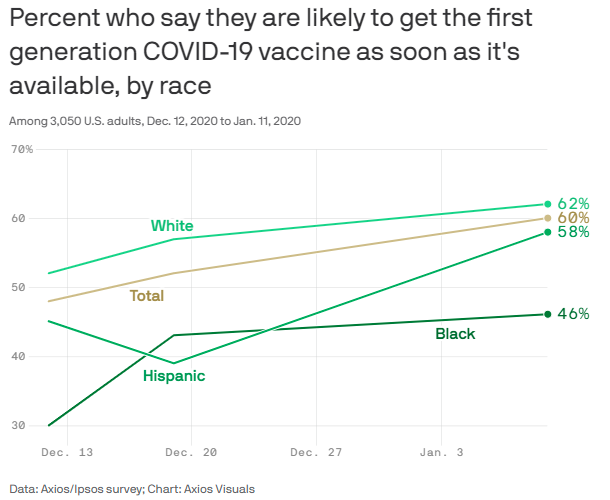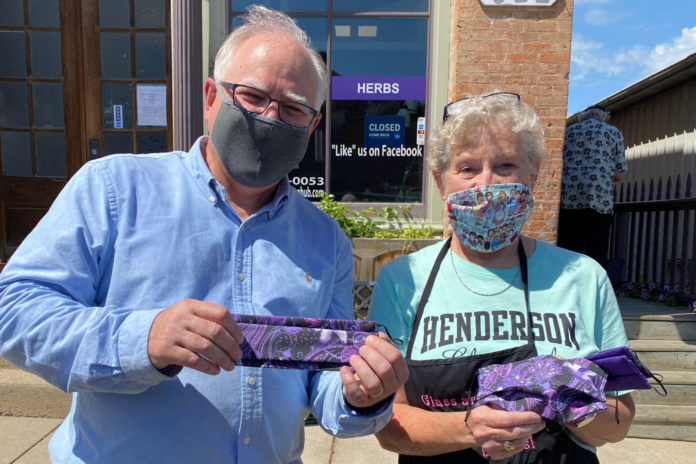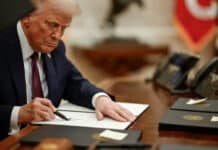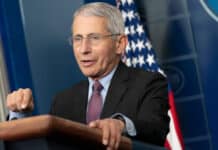Minnesota Gov. Tim Walz said if he could go back and change one thing about his response to the coronavirus, he’d have mandated masks sooner.
Walz gave an interview with WCCO’s Chad Hartman earlier this week. During the conversation, Hartman asked the governor, “what is the one decision you made that if you could go back, you would change it?”
Without hesitation, Walz responded: “I think we’d have masked sooner … I wish I could have gotten bipartisan support on that … I wish I could have simply tried earlier to do that.” He also added that “nationally, that decision to politicize masking” would be America’s biggest COVID-19 regret.
The governor issued his mask mandate on July 22.
Hartman also asked the governor how he responds to those who highlight Wisconsin’s comparable virus statistics despite taking less extreme measures.
“The Wisconsin positivity rate is 2.8%, the death count is pretty close,” Hartman began. “For folks who say that Wisconsin has had businesses and restaurants and schools open much sooner than Minnesota [and] … think we should have looked more at this Wisconsin model especially to help out businesses, you say what?”
Walz said he’s glad his state took a more cautious approach because “we do not yet know what the long term impact of this [virus] will be.”
“What happens when you get pneumonia in two years and it’s coupled with having had COVID?” he asked. “Every decision was based on the data.”
Looking to the future, the governor predicted that his next challenge will be getting people who don’t want the coronavirus vaccine to take it anyway.
“I’m already planning for, and this is not too many weeks down the road, where I’m gonna be sitting on vaccines and I’m gonna have to be figuring out ways to get people to trust it, to take it … and those are the things we’re thinking about right now — which of those communities are not taking it, why are they not taking it, are we getting it to them?” he said.
He also raised great concern about the “equity” of vaccine distribution, mentioning several times throughout the interview that a top priority was ensuring that an equal number of minorities per capita get the shot.
The media has also championed this concern. Headlines like “Minnesota’s vaccine lottery system spawns equity concerns” and “Minnesota falling behind in equitable allocation of COVID-19 vaccine” appeared across outlets this week.
However, the data show that while enthusiasm about the vaccine has increased steadily, black Americans may not be getting it as frequently because they simply don’t want it as much. Only 46% of black people surveyed in a December-January Axios study said they are likely to take the first generation vaccine — as compared to 58-62% of other races who report much higher enthusiasm.

Notably, Walz also took a moment to acknowledge the significant role former President Donald Trump’s Operation Warp Speed played in encouraging vaccine development.
“Think about this, in the world that we’re in right now how quickly this has happened. It’s an amazing story and the previous administration is part of that amazing story of getting this vaccine and getting it out,” he said.


















